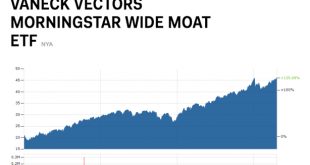from David Ruccio In a 1999 interview with Fortune, legendary investor Warren Buffett coined the term “economic moats” to sum up the main pillar of his investing strategy. He described it like this: The key to investing is not assessing how much an industry is going to affect society, or how much it will grow, but rather determining the competitive advantage of any given company and, above all, the durability of that advantage. The products or services that have wide, sustainable moats...
Read More »Modern economics — a severe case of model Platonism
from Lars Syll That is the great thing about abstraction. Working with what can be called ‘flex price’ models does not imply that you think price rigidity is unimportant, but instead that it can often be ignored if you want to focus on other processes. Simon Wren-Lewis When applying deductivist thinking to economics, mainstream economists like Wren-Lewis usually set up ‘as if’ models based on a set of tight axiomatic assumptions from which consistent and precise inferences are made. The...
Read More »The Transatlantic Alliance will survive Trump
from Mark Weisbrot Every week, and often more than once a week, there is another article in the major media or in foreign policy publications about the demise of the post-World War II Anglo-American world order. These analyses typically single out the Transatlantic Alliance between the US and Europe ― two of the world’s largest economies ― for special concern and anxiety as the underpinning of this world order. Not surprisingly, President Trump’s wildly fluctuating comments on NATO...
Read More »Student debt in the US and the UK
United States United Kingdom
Read More »Brave New Money: The trend toward a digital world currency – part 2
from Norbert Häring part 1 The winner takes all is a basic rule of the digital economy. Whoever is ahead has a large advantage, just from being ahead, and has a good chance to end up as a quasi-monopolist. This has two main reasons, called network effects and economies of scale. Network effects make digital services more attractive, if more people use them. This is true for social media or trading...
Read More »Technobabble economics
from Lars Syll Deductivist modeling endeavours and an overly simplistic use of statistical and econometric tools are sure signs of the explanatory hubris that still haunts mainstream economics. In an interview Robert Lucas says the evidence on postwar recessions … overwhelmingly supports the dominant importance of real shocks. So, according to Lucas, changes in tastes and technologies should be able to explain the main fluctuations in e.g. the unemployment that we have seen during the...
Read More »Bad news for Donald Trump, China is already bigger than the United States
from Dean Baker As we know, Donald Trump is not very good with numbers. He gave more evidence of this fact when he told a campaign rally in West Virginia: “When I came, we were heading in a certain direction that was going to allow China to be bigger than us in a very short period of time …That’s not going to happen anymore.” Actually, China’s economy is already considerably bigger than the US economy. Using the purchasing power parity measure, which is recommended by most economists and...
Read More »The cost of focusing on general equilibrium theory
from Lars Syll The largest problem with the economics profession’s focus on general equilibrium theory is the opportunity costs of that exploration. Important policy problems are not addressed. Consider Pareto optimality and the welfare theorems, which Fisher sees as the underpinnings of Western capitalism. In a world, such as ours, where property rights cannot be allocated effortlessly and costlessly, economist’s welfare theorems have little policy relevance. Does a policy maker care...
Read More »Utopia and materialist critique
from David Ruccio The argument I’ve been making during this series on utopia is that the utopian moment of the Marxian alternative to mainstream economics is critique.* Let me explain. All modern economic theories have a utopian moment. In the case of mainstream economics, that moment is a full-blown utopianism—the idea that there is, or at least in principle can be, a perfectly functioning economic and social order. Such an order is both envisioned as a model within the theory (often by...
Read More »Reformulating the economics curriculum
from Lars Syll Having gone through a handful of the most frequently used textbooks of economics at the undergraduate level today, I can only conclude that the models that are presented in these modern mainstream textbooks try to describe and analyze complex and heterogeneous real economies with a single rational-expectations-robot-imitation-representative-agent. That is, with something that has absolutely nothing to do with reality. And — worse still — something that is not even amenable...
Read More » Real-World Economics Review
Real-World Economics Review






